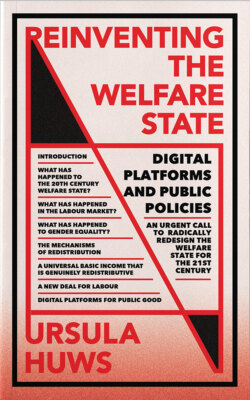Читать книгу Reinventing the Welfare State - Ursula Huws - Страница 20
На сайте Литреса книга снята с продажи.
GENERATION SET AGAINST GENERATION
ОглавлениеWhat, meanwhile, has been the experience of younger generations? Let’s look at the generation born in the early 1980s, now approaching their forties, too young to benefit from the advantages conferred by the post-war welfare state and too old to benefit from the softening of the Thatcherite policies introduced under the New Labour government of the 1990s. They were born too late, for example, for their parents to take advantage of the more generous funding for state nurseries in the pre-Thatcher era but too early to benefit from tax-deductible childcare costs and the Sure Start Programme. Their childhood was played out against a background of progressive cuts. Every year, something was withdrawn that had been available to older children, such as free music lessons, school trips or bus passes for travel to secondary school. They were the guinea-pig generation for much experimental governmental interference in schools, such as SATS examinations and the National Curriculum, and if they went to university they were denied the possibility of being subsidised by a local authority grant and were then hit with the requirement to pay tuition fees as well.
Not only did this generation suffer right through their education; once educated, they also entered a labour market in which the concept of a job for life had vanished. Apart from a lucky few, there were no apprenticeships or protected graduate trainee positions to be applied for. Suddenly, they had to compete, not just with the contemporaries they had been schooled with, but in a global labour market, with similarly qualified workers from all over the world. Without experience it was almost impossible to secure a decent job, and without employment it was impossible to demonstrate experience. The only solution to this Catch 22 on offer to the majority was ‘work experience’ – an unpaid internship that was supposed to confer ‘employability’ (in the process further undermining wages and conditions for the lucky workers who were actually paid).
The punishment of this squeezed and neglected generation, now in middle life, was also, of course, a punishment for their baby-boomer parents, though the young were encouraged to think of their elders as a privileged generation with interests opposed to theirs, on the one hand blocking the career ladder for ambitious juniors at work, on the other, a demographic time-bomb representing an unsustainable cost to the state and an impossible burden on younger generations.
